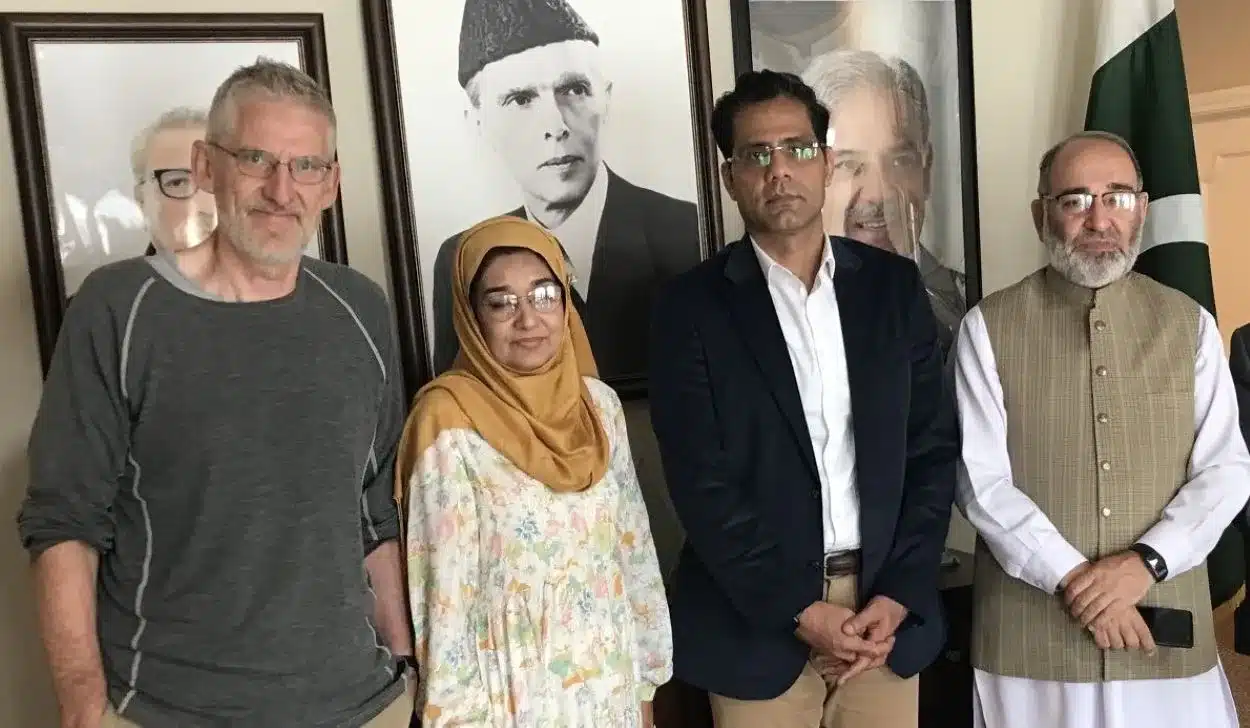In a significant development, Dr. Aafia Siddiqui, a Pakistani neuroscientist serving a prison sentence in the United States for over a decade, was finally able to meet her younger sister, Dr. Fauzia Siddiqui, after a hiatus of 20 years.
The meeting will occur at the Federal Medical Center, Carswell, Texas.
According to Jamaat-e-Islami (JI), Senator Mushtaq Ahmad Khan disclosed the information on Twitter, noting that he and human rights activist Clive Stafford-Smith will meet Dr. Aafia in another meeting on Thursday.
Stafford-Smith is renowned for securing the release of Abdul Rabbani and Ahmed Rabbani from the infamous Guantanamo Bay prison.
In his social media update, Senator Khan highlighted Dr. Aafia’s predicament while stating that this reunion has paved the way for more extensive “discussions and meetings.” He further rallied public support for her release.
Recounting the details of the poignant reunion that lasted for two and a half hours, Senator Khan revealed the severe conditions and abuse that Dr. Aafia endured in her incarceration. The sisters’ interaction was highly restricted, with Dr. Fauzia being disallowed to embrace or shake hands with Dr. Aafia or show her pictures of her children.
Dr. Aafia divulged the distressing experiences of her daily torture during their meeting. In addition, her health seemed to have been significantly compromised, with missing front teeth due to an attack and hearing issues resulting from a head injury.
Dr. Aafia Siddiqui, an alumna of Boston’s prestigious MIT and Brandeis University, was convicted in 2010 by a New York federal district court on charges of attempted murder and assault related to an incident during an interview with the US authorities in Afghanistan, which she has denied. We initially suspected her of having links with Al-Qaeda but were never found guilty of such associations.
Her life took a drastic turn after the 2001 9/11 terror attacks when the FBI flagged her due to her donations to Islamic organizations and her involvement in purchasing equipment and literature linked to warfare. Siddiqui went missing in Karachi, along with her three children, around 2003, only to resurface in Afghanistan five years later, where she was apprehended.






